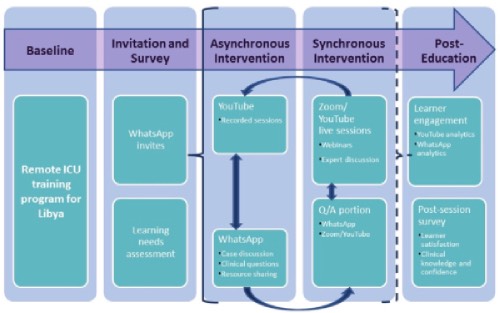Leveraging social media for resident training in developing countries: A case study of Libya
DOI:
https://doi.org/10.17305/bb.2024.10806Keywords:
Remote training, ICU, social media, Libya, developing countriesAbstract
Social media platforms have emerged as invaluable tools for remote training in resource-constrained countries. This study presents the development, implementation, and preliminary assessment of a remote intensive care unit (ICU) training program conducted in Libya utilizing social media platforms. This educational initiative was based on the Checklist for Early Recognition and Treatment of Acute Illness and iNjury (CERTAIN) program, targeting Libyan resident physicians. The initiative comprised a series of live-streamed pulmonary/critical care lectures and asynchronous discussion of clinical cases via a private messaging chat. Participant engagement, satisfaction, and learning outcomes were evaluated using social media analytics and surveys. A total of 323 learners joined the Libyan ICU training program chat group, and two tele-education sessions were broadcast, accumulating a total of 749 views. The majority (72.6%) of learners had graduated from medical school within the past five years and were in residency training. Clinical cases and learning materials were shared through 2,991 messages in the chat group. Learners' objective and subjective clinical knowledge improved after each tele-education session, and 88% of survey respondents rated the remote ICU training program as excellent. This study highlights the potential of using widely available social media platforms for remote ICU education in resource-limited settings.
Citations
Downloads

Downloads
Published
Issue
Section
Categories
License
Copyright (c) 2024 Faysal Al-Ghoula, Dimitrios Kantas, Lucrezia Rovati, Ala Eddin Sagar, Mohammed Megri, Anas Zarmouh, Cameron Gmehlin, Mohamed Benlamin, Tarik Ngab, Ognjen Gajic

This work is licensed under a Creative Commons Attribution 4.0 International License.









